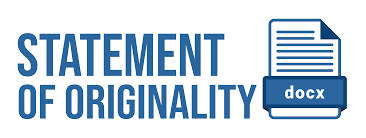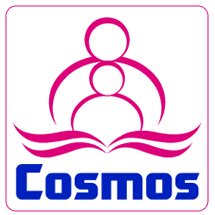THE LECTURERS’ PERCEPTION OF THE IMPLEMENTATION OF ICT FOR CONDUCTING ONLINE LEARNING DURING COVID-19 PANDEMIC
DOI:
https://doi.org/10.32520/eji.v6i2.1945Keywords:
covid-19 pandemic, information and communication technology, lecturers’ perception, onine learningAbstract
During the Covid-19 pandemic, integrating information and communication technology (ICT) in the education sector is inevitable. The use of technology was expected to replace face-to-face instruction with online learning. However, not all educators were ready to use ICT for their instruction. Thus, this study aimed to find out the lecturers' perception towards the implementation of online learning and the problems they faced during the Covid-19 pandemic. The subjects of the research were the lecturers at STKIP Agama Hindu Singaraja. There were 40 lecturers involved in this study. They were selected using the saturated sampling technique. The researcher collected the data through a questionnaire. The questionnaire results were analyzed quantitatively using descriptive statistics. Then, the total score of the questionnaire result was classified using a category based on the theoretical ideal reference assessment formula. The finding showed that, in general, the lecturers had a positive perception of the use of ICT for online learning during the Covid-19. Besides, this study also found some problems faced by the lecturers in implementing online learning. Thus, this study concluded that the lecturers believed that using ICT for online learning was the best option they had during the Covid-19 pandemic, even though they should face various challenges in delivering the instruction through online learning.
References
Alsalhi, N. R., Eltahir, M. E., & Al-Qatawneh, S. S. (2019). The effect of blended learning on the achievement of ninth grade students in science and their attitudes towards its use. Heliyon, 5(9), e02424. https://doi.org/https://doi.org/10.1016/j.heliyon.2019.e02424
Amjah, D. Y. P. H. (2014). A Study of Teachers' Strategies to Develop Students' Interest towards Learning English as a Second Language. Procedia - Social and Behavioral Sciences, 134, 188–192. https://doi.org/10.1016/j.sbspro.2014.04.238
Amri, A., Tebe, Y., Siantoro, A., Indrawati, M., & Prihadi, C. (2021). Teachers voices on school reopening in Indonesia during COVID-19 pandemic. Social Sciences & Humanities Open, 4(1), 100218. https://doi.org/https://doi.org/10.1016/j.ssaho.2021.100218
Apuke, O. D., & Iyendo, T. O. (2018). University students’ usage of the internet resources for research and learning: forms of access and perceptions of utility. Heliyon, 4(12), e01052. https://doi.org/https://doi.org/10.1016/j.heliyon.2018.e01052
Bedenlier, S., Wunder, I., Gläser-Zikuda, M., Kammerl, R., Kopp, B., Ziegler, A., & Händel, M. (2021). “Generation invisible?. Higher Education Students’ (Non)Use of Webcams in Synchronous Online Learning. International Journal of Educational Research Open, 2, 100068. https://doi.org/https://doi.org/10.1016/j.ijedro.2021.100068
Blok, M., van Ingen, E., de Boer, A. H., & Slootman, M. (2020). The use of information and communication technologies by older people with cognitive impairments: from barriers to benefits. Computers in Human Behavior, 104, 106173. https://doi.org/https://doi.org/10.1016/j.chb.2019.106173
Bohak Adam, T., & Metljak, M. (2022). Experiences in distance education and practical use of ICT during the COVID-19 epidemic of Slovenian primary school music teachers with different professional experiences. Social Sciences & Humanities Open, 5(1), 100246. https://doi.org/https://doi.org/10.1016/j.ssaho.2021.100246
Borgonovi, F., & Pokropek, M. (2021). The evolution of the association between ICT use and reading achievement in 28 countries. Computers and Education Open, 2, 100047. https://doi.org/https://doi.org/10.1016/j.caeo.2021.100047
Carrillo, F. A. G. (2012). ¿Can Technology Replace the Teacher in the Pedagogical Relationship with the student? Procedia - Social and Behavioral Sciences, 46, 5646–5655. https://doi.org/10.1016/j.sbspro.2012.06.490
Champa, R. A., Rochsantiningsih, D., & Diah, K. (2019). Teachers’ challenges to integrate ICT in EFL teaching and learning activities. 3rd English Language and Literature International Conference, 3, 135–145.
Chandrasiri, N. R., & Weerakoon, B. S. (2021). Online learning during the COVID-19 pandemic: Perceptions of allied health sciences undergraduates. Radiography. https://doi.org/https://doi.org/10.1016/j.radi.2021.11.008
Comi, S. L., Argentin, G., Gui, M., Origo, F., & Pagani, L. (2017). Is it the way they use it? Teachers, ICT and student achievement. Economics of Education Review, 56, 24–39. https://doi.org/https://doi.org/10.1016/j.econedurev.2016.11.007
Commodari, E. (2013). Preschool teacher attachment, school readiness and risk of learning difficulties. Early Childhood Research Quarterly, 28(1), 123–133. https://doi.org/https://doi.org/10.1016/j.ecresq.2012.03.004
Dalipi, F., Jokela, P., Kastrati, Z., Kurti, A., & Elm, P. (2022). Going digital as a result of COVID-19: Insights from students’ and teachers’ impressions in a Swedish university. International Journal of Educational Research Open, 3, 100136. https://doi.org/https://doi.org/10.1016/j.ijedro.2022.100136
Davis, F. D., Bagozzi, R. P., & Warshaw, P. R. (1989). User Acceptance of Computer Technology: A Comparison of Two Theoretical Models. Management Science, 35(8), 982–1003. https://doi.org/10.1287/mnsc.35.8.982
Du??, N., & Martínez-Rivera, O. (2015). Between Theory and Practice: The Importance of ICT in Higher Education as a Tool for Collaborative Learning. Procedia - Social and Behavioral Sciences, 180, 1466–1473. https://doi.org/https://doi.org/10.1016/j.sbspro.2015.02.294
Dwiono, R., Rochsantiningsih, D., & Suparno, S. (2018). The Teacher ’ s Problems on Integrating Information and Communication Technology ( ICT ) in the English Language Teaching. International Summit on Science Technology and Humanity, 1(Iseth), 1–8.
Eisenbardt, M. (2021). ICT as a tool for gaining and sharing knowledge. Procedia Computer Science, 192, 1839–1847. https://doi.org/https://doi.org/10.1016/j.procs.2021.08.189
Ekuobase, G. O., & Olutayo, V. A. (2016). Study of Information and Communication Technology (ICT) maturity and value: The relationship. Egyptian Informatics Journal, 17(3), 239–249. https://doi.org/https://doi.org/10.1016/j.eij.2015.12.001
Ghavifekr, S., Kunjappan, T., Ramasamy, L., Anthony, A., & My, E. (2006). Teaching and Learning with ICT Tools: Issues and Challenges from Teachers’ Perceptions. 4(2), 38–57.
Gómez-Fernández, N., & Mediavilla, M. (2021). Exploring the relationship between Information and Communication Technologies (ICT) and academic performance: A multilevel analysis for Spain. Socio-Economic Planning Sciences, 101009. https://doi.org/https://doi.org/10.1016/j.seps.2021.101009
Gómez-García, M., Hossein-Mohand, H., Trujillo-Torres, J. M., & Hossein-Mohand, H. (2020). The training and use of ICT in teaching perceptions of melilla's (Spain) mathematics teachers. Mathematics, 8(10). https://doi.org/10.3390/MATH8101641
Hossain, M. (2021). Unequal experience of COVID-induced remote schooling in four developing countries. International Journal of Educational Development, 85, 102446. https://doi.org/https://doi.org/10.1016/j.ijedudev.2021.102446
Hu, B., Noman, S. M., Irshad, M., Awais, M., Tang, X., Farooq, U., & Song, C. (2021). A pilot study of Global ICT strategy applications in sustainable continuing education. Procedia Computer Science, 183, 849–855. https://doi.org/10.1016/j.procs.2021.03.009
Jokhan, A., Chand, A. A., Singh, V., & Mamun, K. A. (2022). Increased Digital Resource Consumption in Higher Educational Institutions and the Artificial Intelligence Role in Informing Decisions Related to Student Performance. Sustainability, 14(4), 2377. https://doi.org/10.3390/su14042377
Joseph, J. (2012). The Barriers of using Education Technology for Optimizing the Educational Experience of Learners. Procedia - Social and Behavioral Sciences, 64, 427–436. https://doi.org/10.1016/j.sbspro.2012.11.051
Kalmar, E., Aarts, T., Bosman, E., Ford, C., de Kluijver, L., Beets, J., Veldkamp, L., Timmers, P., Besseling, D., Koopman, J., Fan, C., Berrevoets, E., Trotsenburg, M., Maton, L., van Remundt, J., Sari, E., Omar, L.-W., Beinema, E., Winkel, R., & van der Sanden, M. (2022). The COVID-19 paradox of online collaborative education: when you cannot physically meet, you need more social interactions. Heliyon, 8(1), e08823. https://doi.org/https://doi.org/10.1016/j.heliyon.2022.e08823
Kang, D., Stough, L. M., Yoon, M., & Liew, J. (2021). The structural association between teacher-student relationships and school engagement: Types and informants. International Journal of Educational Research Open, 2, 100072. https://doi.org/https://doi.org/10.1016/j.ijedro.2021.100072
Karattuthodi, M. S., C, S. C., Thorakkattil, S. A., Chandrasekhar, D., Punnoth Poonkuzhi, N., Mohammed Ahmed Ageeli, M., & Madathil, H. (2022). Pharmacy Student’s challenges in virtual learning system during the second COVID 19 wave in southern India. Social Sciences & Humanities Open, 5(1), 100241. https://doi.org/https://doi.org/10.1016/j.ssaho.2021.100241
Keller, J., & von der Gracht, H. A. (2014). The influence of information and communication technology (ICT) on future foresight processes — Results from a Delphi survey. Technological Forecasting and Social Change, 85, 81–92. https://doi.org/https://doi.org/10.1016/j.techfore.2013.07.010
Kozlova, D., & Pikhart, M. (2021). The Use of ICT in Higher Education from the Perspective of the University Students. Procedia Computer Science, 192, 2309–2317. https://doi.org/https://doi.org/10.1016/j.procs.2021.08.221
Lee, Y.-C., Malcein, L. A., & Kim, S. C. (2021). Information and Communications Technology (ICT) Usage during COVID-19: Motivating Factors and Implications. International Journal of Environmental Research and Public Health, 18(7), 3571. https://doi.org/10.3390/ijerph18073571
Looi, K. H. (2021). Data set of the challenges and future preference for e-learning of Malaysian business undergraduates during the COVID-19 pandemic. Data in Brief, 38, 107450. https://doi.org/https://doi.org/10.1016/j.dib.2021.107450
Looi, K., Wye, C. K., & Bahri, E. N. A. (2022). Achieving Learning Outcomes of Emergency Remote Learning to Sustain Higher Education during Crises: An Empirical Study of Malaysian Undergraduates. Sustainability (Switzerland), 14(3). https://doi.org/10.3390/su14031598
Lorenza, L., & Carter, D. (2021). Emergency online teaching during COVID-19: A case study of Australian tertiary students in teacher education and creative arts. International Journal of Educational Research Open, 2, 100057. https://doi.org/https://doi.org/10.1016/j.ijedro.2021.100057
Maqableh, M., & Alia, M. (2021). Evaluation online learning of undergraduate students under lockdown amidst COVID-19 Pandemic: The online learning experience and students’ satisfaction. Children and Youth Services Review, 128, 106160. https://doi.org/https://doi.org/10.1016/j.childyouth.2021.106160
Miniawi, H. El, & Brenjekjy, A. (2015). Educational Technology, Potentials, Expectations and Challenges. Procedia - Social and Behavioral Sciences, 174, 1474–1480. https://doi.org/10.1016/j.sbspro.2015.01.777
Misut, M., & Pokorny, M. (2015). Does ICT Improve the Efficiency of Learning? Procedia - Social and Behavioral Sciences, 177, 306–311. https://doi.org/https://doi.org/10.1016/j.sbspro.2015.02.346
Munastiwi, E., & Puryono, S. (2021). Unprepared management decreases education performance in kindergartens during Covid-19 pandemic. Heliyon, 7(5), e07138. https://doi.org/https://doi.org/10.1016/j.heliyon.2021.e07138
Muthuprasad, T., Aiswarya, S., Aditya, K. S., & Jha, G. K. (2021). Students’ perception and preference for online education in India during COVID -19 pandemic. Social Sciences & Humanities Open, 3(1), 100101. https://doi.org/https://doi.org/10.1016/j.ssaho.2020.100101
Myna?íková, L., & Novotný, L. (2021). The Current Challenges of Further Education in ICT with the Example of the Czech Republic. In Sustainability (Vol. 13, Issue 8). https://doi.org/10.3390/su13084106
Noori, A. Q. (2021). The impact of COVID-19 pandemic on students’ learning in higher education in Afghanistan. Heliyon, 7(10), e08113. https://doi.org/https://doi.org/10.1016/j.heliyon.2021.e08113
Nurkencana, W., & Sunartana, P. P. (1992). Education Evaluation. Usaha Nasional.
Palomino, M. del C. P. (2017). Teacher Training in the Use of ICT for Inclusion: Differences between Early Childhood and Primary Education. Procedia - Social and Behavioral Sciences, 237, 144–149. https://doi.org/https://doi.org/10.1016/j.sbspro.2017.02.055
Piper, B., Zuilkowski, S. S., Kwayumba, D., & Strigel, C. (2016). Does technology improve reading outcomes? Comparing the effectiveness and cost-effectiveness of ICT interventions for early grade reading in Kenya. International Journal of Educational Development, 49, 204–214. https://doi.org/https://doi.org/10.1016/j.ijedudev.2016.03.006
Pradhan, R. P., Mallik, G., & Bagchi, T. P. (2018). Information communication technology (ICT) infrastructure and economic growth: A causality evinced by cross-country panel data. IIMB Management Review, 30(1), 91–103. https://doi.org/https://doi.org/10.1016/j.iimb.2018.01.001
Prasetyanto, D., Rizki, M., & Sunitiyoso, Y. (2022). Online Learning Participation Intention after COVID-19 Pandemic in Indonesia: Do Students Still Make Trips for Online Class? Sustainability (Switzerland), 14(4). https://doi.org/10.3390/su14041982
Ramírez-Rueda, M. del C., Cózar-Gutiérrez, R., Roblizo Colmenero, M. J., & González-Calero, J. A. (2021). Towards a coordinated vision of ICT in education: A comparative analysis of Preschool and Primary Education teachers’ and parents’ perceptions. Teaching and Teacher Education, 100, 103300. https://doi.org/https://doi.org/10.1016/j.tate.2021.103300
Samra, S. K. (2013). Technology in the Classroom: Target or Tool. Procedia - Social and Behavioral Sciences, 81, 609–612. https://doi.org/10.1016/j.sbspro.2013.06.484
Scherer, R., Howard, S. K., Tondeur, J., & Siddiq, F. (2021). Profiling teachers’ readiness for online teaching and learning in higher education: Who’s ready? Computers in Human Behavior, 118, 106675. https://doi.org/https://doi.org/10.1016/j.chb.2020.106675
Schwenck, C. M., & Pryor, J. D. (2021). Student perspectives on-camera usage to engage and connect in foundational education classes: It's time to turn your cameras on. International Journal of Educational Research Open, 2, 100079. https://doi.org/https://doi.org/10.1016/j.ijedro.2021.100079
Siddiquah, A., & Salim, Z. (2017). The ICT facilities, skills, usage, and the problems faced by the students of higher education. Eurasia Journal of Mathematics, Science and Technology Education, 13(8), 4987–4994. https://doi.org/10.12973/eurasia.2017.00977a
Simões, S., Oliveira, T., & Nunes, C. (2022). Influence of computers in students’ academic achievement. Heliyon, 8(3), e09004. https://doi.org/https://doi.org/10.1016/j.heliyon.2022.e09004
Suduc, A. M., Bîzoi, M., Gorghiu, G., & Gorghiu, L. M. (2011). Information and communication technologies in science education. Procedia - Social and Behavioral Sciences, 15, 1076–1080. https://doi.org/10.1016/j.sbspro.2011.03.241
V?idean, V. L., & Achim, M. V. (2022). When more is less: Do information and communication technologies (ICTs) improve health outcomes? An empirical investigation in a non-linear framework. Socio-Economic Planning Sciences, 80, 101218. https://doi.org/https://doi.org/10.1016/j.seps.2021.101218
Wang, A. I., & Tahir, R. (2020). The effect of using Kahoot! for learning – A literature review. Computers & Education, 149, 103818. https://doi.org/https://doi.org/10.1016/j.compedu.2020.103818
Wardoyo, C., Satrio, Y. D., Narmaditya, B. S., & Wibowo, A. (2021). Do technological knowledge and game-based learning promote students achievement: lesson from Indonesia. Heliyon, 7(11), e08467. https://doi.org/https://doi.org/10.1016/j.heliyon.2021.e08467
Yakovleva, Y. V., & Goltsova, N. V. (2016). Information and Communication Technologies as a Means of Developing Pupils’ Learning Motivation in Elementary School. Procedia - Social and Behavioral Sciences, 233(May), 428–432. https://doi.org/10.1016/j.sbspro.2016.10.179
Yieng, L. P., & Saat, R. M. (2013). Use of Information Communications Technology (ICT) in Malaysian Science Teaching; A Microanalysis of TIMSS 2011. Procedia - Social and Behavioral Sciences, 103, 1271–1278. https://doi.org/https://doi.org/10.1016/j.sbspro.2013.10.456
Ziemba, E. (2021). Sustainability Driven by ICT Adoption within Households, Enterprises, and Government Units. Procedia Computer Science, 192, 2279–2290. https://doi.org/https://doi.org/10.1016/j.procs.2021.09.001




















